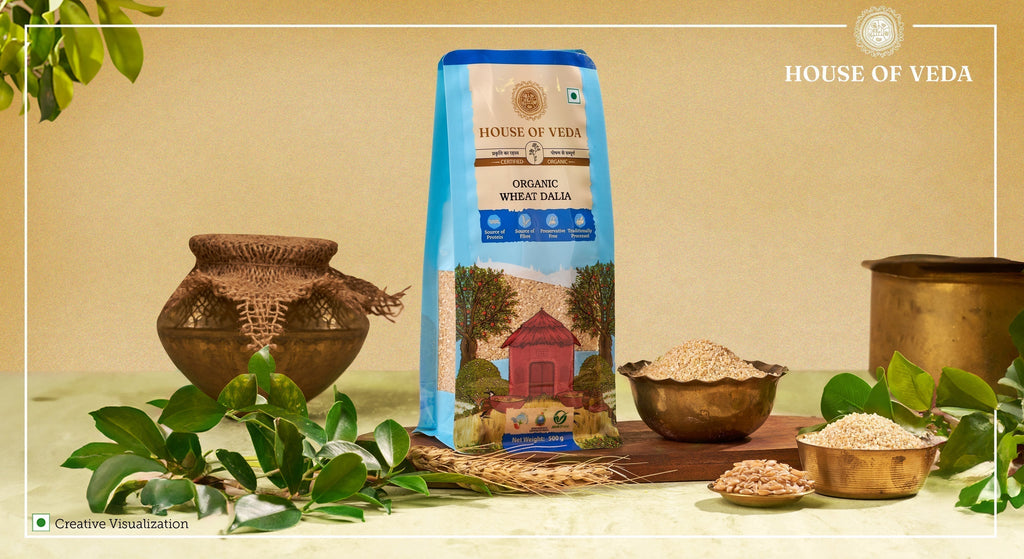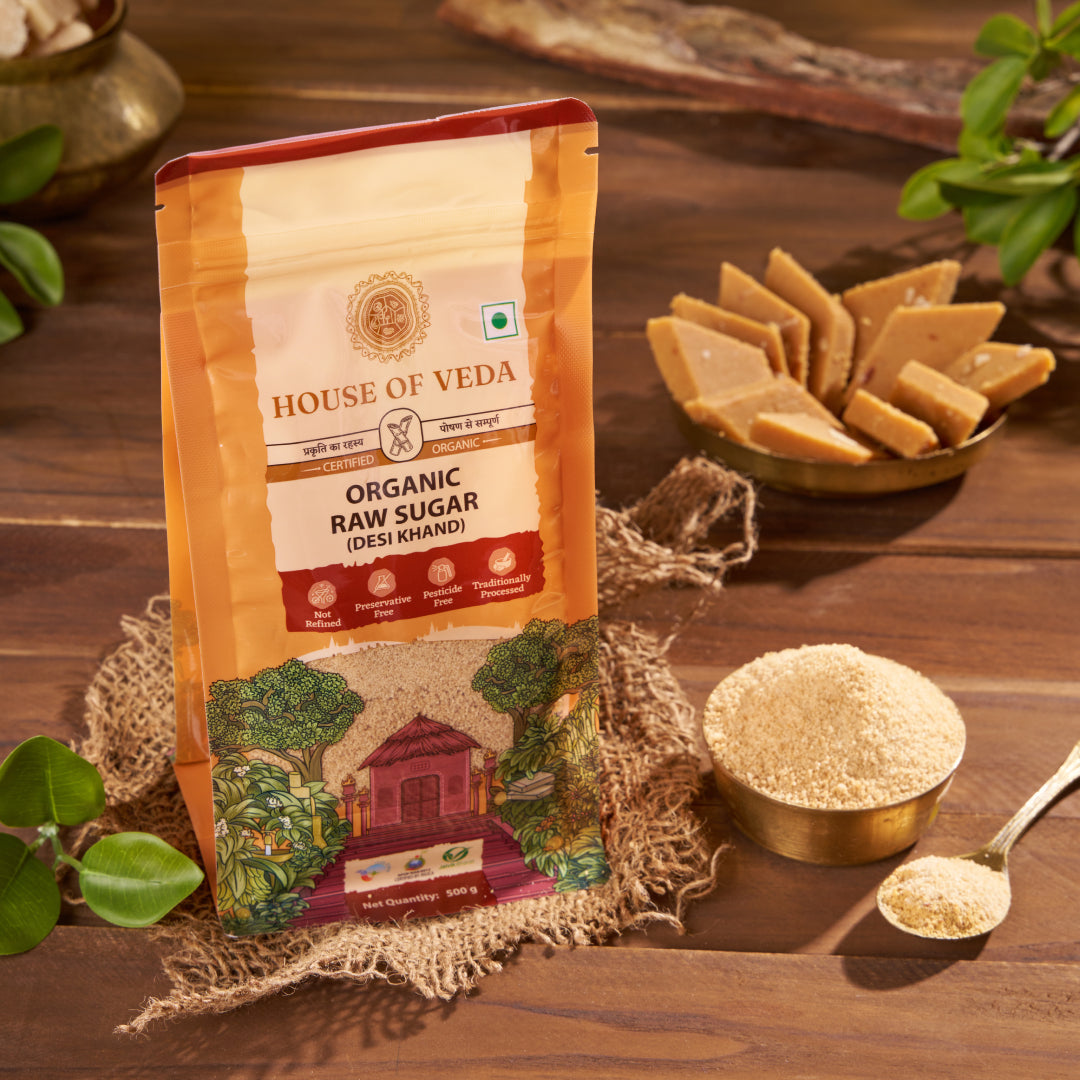
Sunflower Oil: Is It Good for You?

There are several cooking oils in the market and sometimes it becomes difficult for the consumers to pick the right one. Among so many options, sunflower oil shines brightly as a popular choice for many households. However, people still think is sunflower oil good for health? This oil is renowned for its versatility, mild flavor, and high smoke point, sunflower oil has secured its place in kitchens worldwide. But beyond its culinary prowess, is sunflower oil truly good for you? Let's find out the nutritional profile, health benefits, and potential considerations of incorporating this golden elixir into your diet.
Nutritional Profile of Sunflower Oil
Sunflower oil is extracted from the seeds of the sunflower plant (Helianthus annuus) through pressing or solvent extraction. Sunflower oil nutrition profile is rich as it has a composition of essential fatty acids, vitamins, and antioxidants, making it a valuable addition to any diet. Here's a closer look at its nutritional content:
Healthy Fats: Sunflower oil is predominantly composed of monounsaturated and polyunsaturated fats, particularly linoleic acid (omega-6) and oleic acid (omega-9). These fats play vital roles in supporting heart health and reducing inflammation within the body.
Vitamin E: A potent antioxidant, vitamin E is abundantly present in sunflower oil. This vitamin helps neutralize harmful free radicals, thereby protecting cells from oxidative damage and supporting skin health.
Phytosterols: Sunflower oil contains phytosterols, plant compounds structurally similar to cholesterol. Consuming phytosterols has been associated with lowering LDL cholesterol levels, thus reducing the risk of heart disease.
Vitamin K: Although present in smaller amounts, sunflower oil contributes to your daily intake of vitamin K, which is essential for blood clotting and bone health.
Zero Cholesterol: Sunflower oil is naturally cholesterol-free, making it a heart-healthy alternative to saturated fats like butter or lard.
Health Benefits of Sunflower Oil
Is sunflower oil healthy? Let’s see some of the health benefits it offers to find out if it’s a good idea to incorporate the oil in your diet or not.
Heart Health: The high content of unsaturated fats in sunflower oil can help lower LDL cholesterol levels and reduce the risk of cardiovascular diseases when used as part of a balanced diet.
Anti-inflammatory Properties: Linoleic acid, a primary component of sunflower oil, possesses anti-inflammatory properties that may alleviate symptoms of inflammatory conditions such as arthritis and asthma.
Skin Nourishment: Topical application of sunflower oil can moisturize the skin, enhance its barrier function, and promote a radiant complexion, thanks to its vitamin E content.
Improved Digestion: Sunflower oil aids in the absorption of fat-soluble vitamins and facilitates smooth digestion, promoting overall gut health.
Weight Management: Substituting saturated fats with healthier alternatives like sunflower oil may support weight management efforts by reducing calorie intake and improving metabolic health.
Considerations and FAQs About Sunflower Oil
1. Can I Use Sunflower Oil for High-Heat Cooking?
Yes, sunflower oil uses are many because of its high smoke point makes it suitable for frying, sautéing, and baking at elevated temperatures without undergoing oxidative damage.
2. Is Refined or Unrefined Sunflower Oil Better?
Unrefined and cold-pressed oils are better in terms of their nutritional profile as they retain more nutrients and impart a subtle nutty flavor, perfect for salad dressings and dips. You can try House of Veda sunflower oil which is traditionally processed and rich in nutrition.
3. Are There Any Risks Associated with Sunflower Oil Consumption?
While sunflower oil is generally safe for consumption, excessive intake of omega-6 fatty acids, if not balanced with omega-3 fatty acids, may promote inflammation in the body. It's essential to maintain a varied diet to ensure optimal omega-3 to omega-6 ratio.
4. Can Individuals with Nut Allergies Consume Sunflower Oil?
Yes, sunflower oil is typically safe for individuals with nut allergies as it is extracted from sunflower seeds, not tree nuts or peanuts. However, individuals should always read labels and consult with healthcare professionals if uncertain.
5. How Should I Store Sunflower Oil to Maintain Freshness?
To preserve the quality and prevent rancidity, store sunflower oil in a cool, dark place away from direct sunlight and heat sources. Seal the bottle tightly after each use to minimize exposure to oxygen.
In conclusion, sunflower oil stands as a nutritious and versatile culinary ingredient with a myriad of health benefits. Whether used for cooking, skincare, or dietary supplementation, incorporating this golden oil into your lifestyle can contribute to overall well-being and vitality. Embrace the goodness of sunflower oil and elevate your health one delicious dish at a time!
Read More:
The Power of Cold-Pressed Organic Oils
Know the Best Organic Products that Fits in Your Daily Diet













